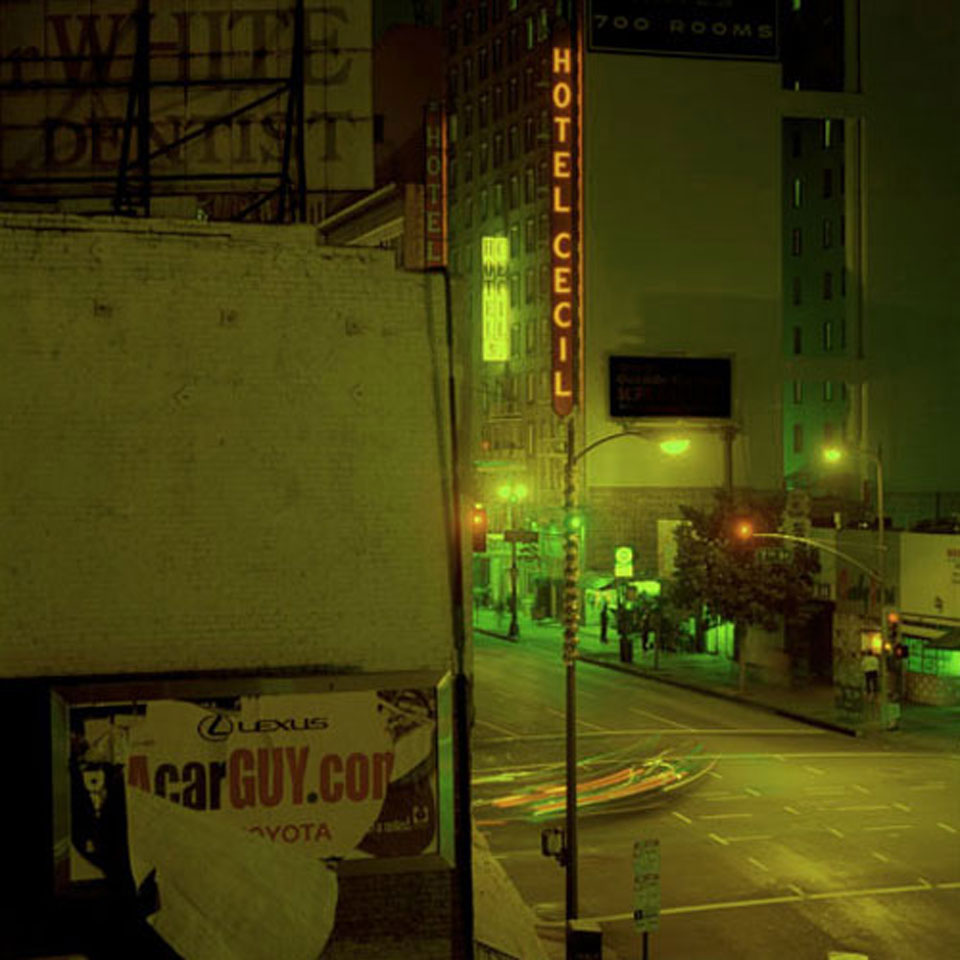Jeanne Hilary
I needed a drink, I needed a lot of life insurance, I needed a vacation,
I needed a home in the country. What I had was a coat, a hat, and a gun.
I put them on and went out of the room.
Raymond Chandler, Farewell My Lovely 1940
Los Angeles twinkles and gleams on the far side of 1,000 miles of sagebrush and empty highways, the end of the line for America’s westward quest for reinvention. An eternal promise of movie stars discovered in drug stores and fortunes gushing out of holes in the ground or suburban garages. A city of angels of the strictly fallen variety. Lighting a cigarette beneath a streetlamp is one man whose dream is not of power and fame but of mercy and moral justice in a corrupt universe. The last honest man, or perhaps just the last man standing. A white-hat cowboy whose frontier is the glittering, electric city after the sun goes down. At two o’clock in the morning, perhaps this man is you, perhaps he is me, perhaps for a minute or maybe an hour. Perhaps we’ll remember him when day comes, or more likely we’ll forget. It’s just what we do to get through the day. When night falls, it will be surprisingly easy to slip past the Los Angeles of 1,000 television drama episodes and red carpet interviews into Raymond Chandler’s city of 60 or even 100 years ago. His South Central of 1940 resonates in the shadows of South Central today. The desperation of his Hollywood Hills, the resignation of his Santa Monica, the despair of his downtown are all there beneath the endless waves of hopeful faces cresting, falling and breaking on the contours of today’s streets, hotel bars, and bedrooms. His modernity is our modernity, his hopes are our hopes, and his fatigue is our fatigue. This Los Angeles is a city in which the transitory has congealed into a tough, lurid film of what endures.


